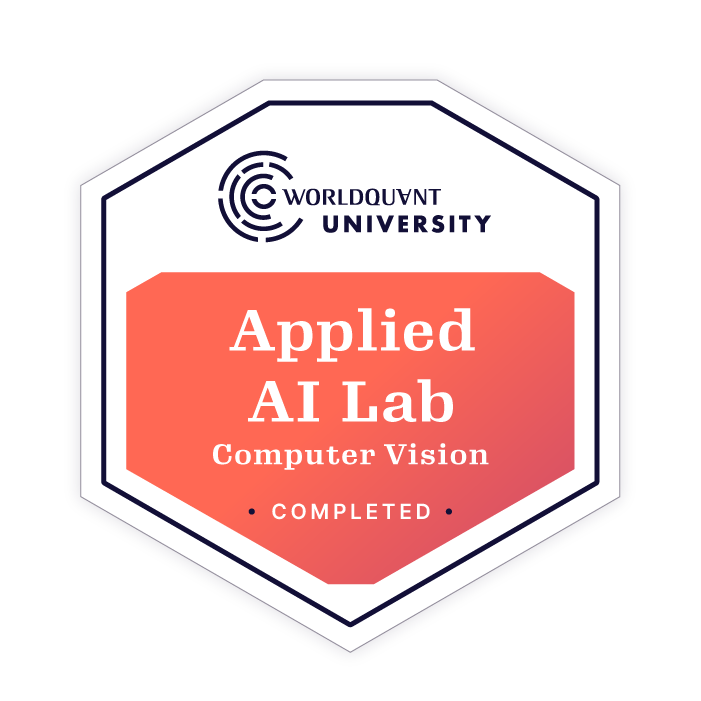

Computer Vision as a Gateway to Deep Learning
Computer vision stands out as one of the most accessible and impactful applications of deep learning with its use of neural networks to interpret complex visual data. Its ability to address real-world problems makes it the ideal starting point for those ready to master artificial intelligence in an applied setting. Beyond its use in specialized roles such as computer vision engineering, AI research, and robotics development, these skills are increasingly valuable in healthcare, where medical imaging aids diagnostics; agriculture, for monitoring crop health; and security, with applications in surveillance and biometrics.
Our self-paced Applied AI Lab focuses on practical applications, using computer vision as a hands-on framework for building essential deep learning skills. Through 6 real-world projects, you’ll learn to clean and transform visual data, train custom computer vision models, and apply advanced techniques like transfer learning. By the end of the program, you’ll will be equipped with end-to-end computer vision skills, from data preparation to model deployment, ready to tackle complex challenges across industries.
"Mastering deep learning for computer vision empowers young professionals with practical tools to solve real-world challenges across industries, from healthcare to agriculture, positioning them to lead with expertise in ethical, sustainable AI, and to tackle complex, meaningful problems."
Dr. Iván Blanco
Associate Finance Professor, CUNEF University, Founder & Director, NOAX Trading
Applied AI Lab:
Deep Learning for Computer Vision
| Applicant Deadline | Rolling Admissions |
|---|---|
| Program Start Date | Upon Acceptance |
| Cost | Entirely Free |
| Length | 10-16 weeks |
| Applicant Requirements |
|
| Commitment | Self-paced, 10-15h per week |
| Credentials Awarded | Sharable Credly Certification |

Upon successful completion of the Applied AI Lab, students receive both a digital certificate and a sharable, verified credential.
What You'll Learn
The Applied AI Lab curriculum is delivered on virtual machines, enabling students to code alongside video lectures and engage with peers and instructors via collaborative forums and live office hours. After successfully completing the Lab, students earn an easily shareable WQU badge issued by Credly.
1. Assess a data science competition designed to help scientists track animals in a wildlife preserve in Côte d'Ivoire
2. Build and train a convolutional neural network to classify images of crop disease in Uganda
3. Create an object detection model to monitor traffic flow in Dhaka, Bangladesh.
4. Perform face detection and recognition tasks using a video interview with Indian Olympic boxer Mary Kom
5. Use neural networks to generate a variety of medical images
6. Use a stable diffusion model to create and deploy a meme generator app on Streamlit for social media marketing in the United States.
